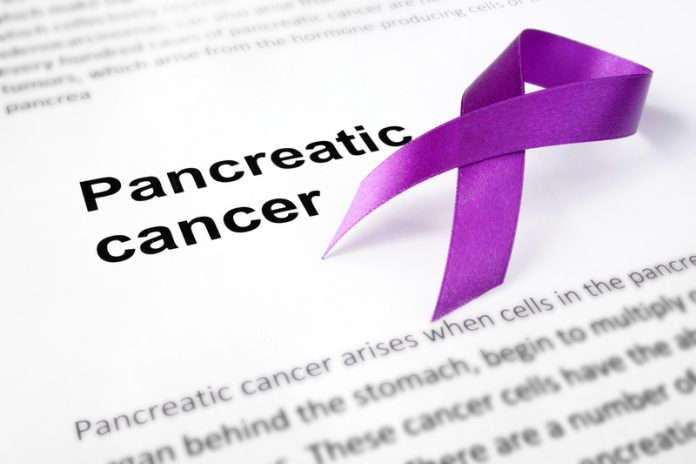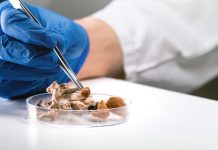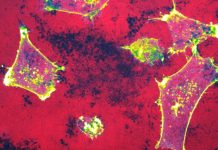Science Information Officer Dr Catherine Pickworth outlines the work being carried out by Cancer Research UK to fight against pancreatic cancer
Over the last 40 years, we’ve seen overall cancer survival double. But while some cancer types have seen an even bigger improvement in survival, in others, survival remains stubbornly low. To achieve our goal of 3 in 4 people surviving cancer for 10 years or more by 2034, we need to change that.
Pancreatic cancer is one of these cancers where survival remains low. Almost 10,000 people in the UK are diagnosed with pancreatic cancer every year, and less than 5% of people will survive beyond 5 years of their initial diagnosis.
Three-pronged approach
We are using a three-pronged approach to help improve the outlook for pancreatic cancer patients – we want to prevent the disease, diagnose it earlier and develop new and better treatments for it.
The first approach is to reduce the number of people developing pancreatic cancer. While age and genetics both affect a person’s risk of pancreatic cancer, and are factors we can’t control, 37% of cases could be prevented.
Many people are aware of the link between smoking and lung cancer, but there is also evidence that about a third of pancreatic cancers may also be linked to smoking. Being overweight or obese is also linked to the disease.
For those people who do develop pancreatic cancer, we want to ensure they are diagnosed as early as possible. One of the main reasons that pancreatic cancer is so hard to treat is because it’s often diagnosed late when treatment is less likely to be successful. By studying how healthy cells become cancer cells, researchers hope to find new ways to spot pancreatic cancer earlier.
Our final angle is to improve the treatments we have and develop new ones. Right now, we’re running clinical trials looking at ways to combine treatments to make them more effective. We are also working on tailoring existing treatments to individual patients so that each person gets the best treatment for them.
In March 2017, we invested £10 million in a programme of research to do just that. PRECISION-Panc is an ambitious study that aims to make it quicker to recruit pancreatic cancer patients to the most appropriate clinical trial for them.
But alongside getting the best treatment to every patient, we need innovative ideas and research projects that will develop new ways to treat pancreatic cancer.
Among the innovative projects we’re funding, is a study on how pancreatic cancer cells ‘talk’ to the cells around them and to the body’s own immune defences. Understanding and interfering with this communication could lead to new treatments that are desperately needed.
Together with Stand Up To Cancer (SU2C) and the Lustgarten Foundation, we’ve invested a total of £8 million which will help international scientists connect and collaborate, to stimulate new thinking and speed up progress. By funding big, bright ideas and strong collaborations, we hope to revolutionise understanding of pancreatic cancer, find innovative ways of treating the disease and ultimately help more people survive their cancer.
Dr Catherine Pickworth
Science Information Officer
Cancer Research UK











